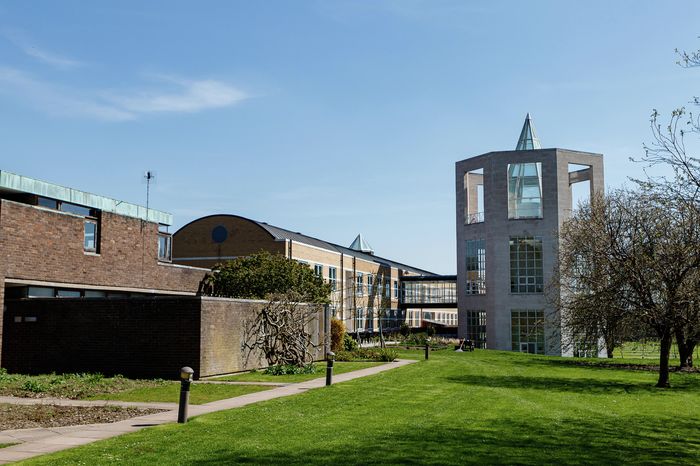On the myth of cancel culture
Amaka Dominic-Udeagbaja explores the way in which younger generations have been branded oversensitive and hysterical

Content note: this article contains discussions of racism, homophobia, and ableism
In an age of increasing outrage towards political correctness, there seem to be more conversations about the radical left taking over, making simple conversation that bit more difficult for the average person. However, the same people who cite political correctness as the downfall of our generation, interestingly enough, are known to be offended by different gender identities, veganism, or any proximity to wokeness. This very phenomenon is exemplified by the track record of Piers Morgan, author of Wake Up. I won’t pretend that I’ve written as much as Piers on these topics, because the oppression experienced by the straight, white man has fortunately not been my cross to bear. However, I do want to provide further discussion on three statements I’ve frequently come across.
‘You can’t say anything nowadays’
This kind of statement is usually followed by commentary on the declining respect for free speech, where an individual struggles to go through a single conversation without being accused of racism, sexism or any other tool of oppression. One could focus on the ways in which they could acknowledge their unintended contribution to discrimination, but it seems that accountability is an unreasonable ask of an adult, and far too much of a hassle. Free speech, therefore, is sometimes more of a one way right. Those concerned about the state of free speech tend to reserve these privileges for people who either look like them or agree with them. For example, Bob says something Femi thinks is racist. You can’t stop Bob from saying what he wants to – but you also shouldn’t be able to stop Femi from saying what she wants to as well.
“The outrage towards disagreement suggests a degree of sensitivity – a sensitivity that those labelled overly PC are usually accused of indulging in”
Freedom of speech doesn’t mean you can say whatever you want, and that no one can challenge you, but the outrage towards disagreement suggests a degree of sensitivity – a sensitivity that those labelled overly PC are usually accused of indulging in. The notion that ‘you can’t say anything without people being offended’ is a tool of shame which suggests that only certain people are allowed to say as they wish but others cannot challenge them. This, in and of itself, is a violation of the apparently fundamental right to free speech, and should particular voices be challenged, they are ‘too easily offended.'
‘When did everything become so offensive?’
This puts the onus on someone who has taken offence, as opposed to the victim of whichever microaggression. Within a culture that champions free speech, you would expect that this also means there’s a space for people to be offended and voice concerns as they please, but this is met with accusations of hysteria and a lack of emotional regulation. The first thing that comes to mind when I hear these kind of remarks is that things like the n- and r-words, referring to people as coloured, and alluding to things you don’t like as ‘gay’ – remarks that have always been offensive, as the people on the receiving end would likely attest to. People tend to draw on the terms that have been used for years and years, and this only shows the extent to which particular microaggressions have been normalised. Additionally, harking back to the decades of the 60s and 70s as a time of relative freedom is a slap in the face to LGBTQ+ individuals whose romantic lives were criminalised, and where black and brown people were only just being protected from a country that promoted the large scale denial of employment and housing.
“People tend to draw on the terms that have been used for years and years, and this only shows the extent to which particular microaggressions have been normalised”
There’s also a lot to be said about the value of information obtained from the internet. Had I grown up without a plethora of access to podcasts, YouTube videos and various articles, I, unfortunately, would have likely misunderstood the furore around the individuals within the British monarchy who had concerns about the skin colour of the child of the first non-white senior royal, or why people were motivated to pull down the statue of an industrial slave owner. This flow of information has not only allowed me a peek into the lives of people unlike myself, but has better grounded me in the social and historical context in which seemingly mundane remarks are made, and their covertly nefarious nature.
‘Cancel culture has gone mad’
This usually comes from the descendants of individuals who have, in one way or another, cancelled whole cultures via imperial projects. During my studies, I’ve greatly appreciated the context in which people inevitably grow up to become racist – for example, if they grow up in a household where they are frequently exposed to racist comments. However, this means that there must be space for the person’s actions to be changed, because, to some extent, people are capable of change and this is especially true in cases of celebrities who have had tweets dragged up from the time before most of our generation could even portray them as someone they likely aren’t now.
However, in the case of someone who has been exposed for near irredeemable behaviour in the present day, I maintain the right to stop consuming their work or engaging with their social media. Cancel culture is often lambasted for encouraging a mob mentality which doesn’t allow for individual members to consider what it is that an individual has done to warrant such an attack, and, apparently, this leads to a person’s life being ruined and their career being permanently damaged. Unfortunately, there are many cases of royals, singers and actors who have somehow escaped the cruel fate of cancel culture – at least permanently. How out-of-control has cancel culture gone if there aren’t any lasting effects?
 Features / Are you more yourself at Cambridge or away from it? 27 January 2026
Features / Are you more yourself at Cambridge or away from it? 27 January 2026 Interviews / Lord Leggatt on becoming a Supreme Court Justice21 January 2026
Interviews / Lord Leggatt on becoming a Supreme Court Justice21 January 2026 News / Reform candidate retracts claim of being Cambridge alum 26 January 2026
News / Reform candidate retracts claim of being Cambridge alum 26 January 2026 News / Vigil held for tenth anniversary of PhD student’s death28 January 2026
News / Vigil held for tenth anniversary of PhD student’s death28 January 2026 News / Stand Up To Racism protests in solidarity with Minneapolis marches28 January 2026
News / Stand Up To Racism protests in solidarity with Minneapolis marches28 January 2026










